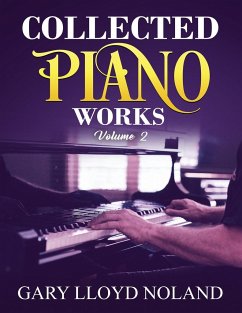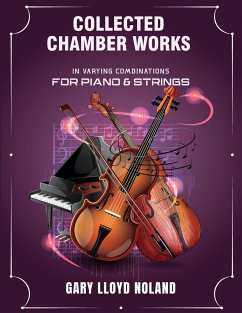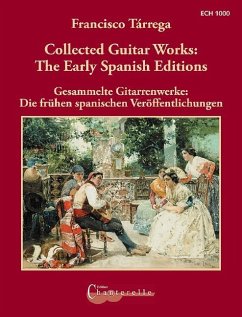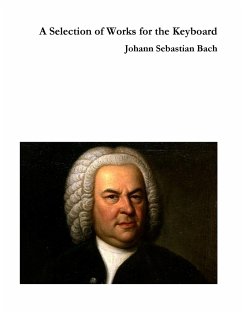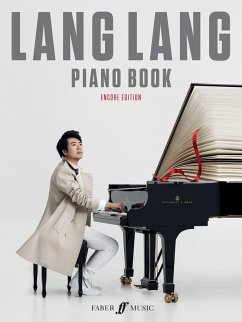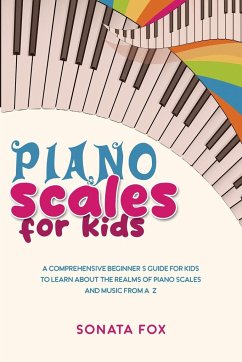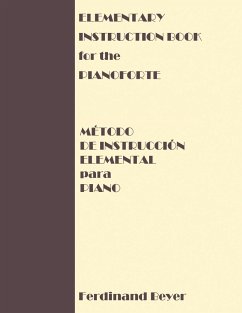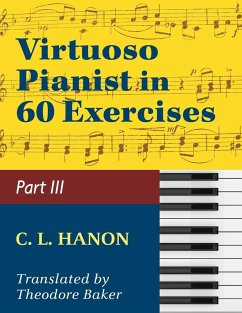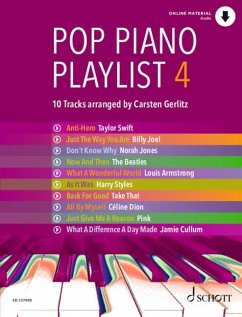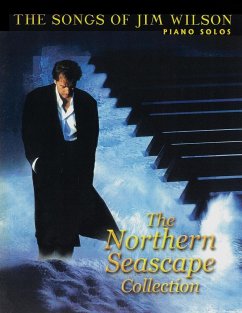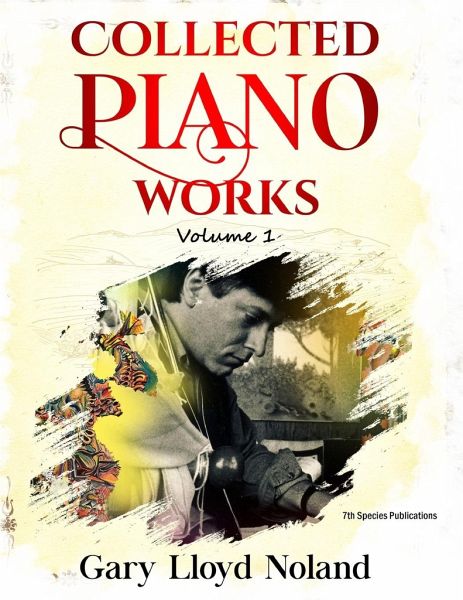
Collected Piano Works
Volume 1
Versandkostenfrei!
Versandfertig in 1-2 Wochen
23,99 €
inkl. MwSt.

PAYBACK Punkte
12 °P sammeln!
This compilation of music by Gary Lloyd Noland (1957-) represents a sampling of his compositions for piano spanning the last three decades of the 20th century until the time of this writing (2021). This is a multi-faceted collection of piano pieces ranging in level from lower intermediate to upper advanced. Included in this volume are three piano rags: Russell Street Rag Op. 5 (named after the street in Berkeley on which the composer grew up), Nerdfox Rag Op. 23, and Ragbones Op. 11 (which has been described as the first piano rag in history containing a bona fide development section), along w...
This compilation of music by Gary Lloyd Noland (1957-) represents a sampling of his compositions for piano spanning the last three decades of the 20th century until the time of this writing (2021). This is a multi-faceted collection of piano pieces ranging in level from lower intermediate to upper advanced. Included in this volume are three piano rags: Russell Street Rag Op. 5 (named after the street in Berkeley on which the composer grew up), Nerdfox Rag Op. 23, and Ragbones Op. 11 (which has been described as the first piano rag in history containing a bona fide development section), along with a deconstructed and abbreviated version thereof excerpted from the composer's multi-fascicle chamber novel Venge Art (Fascicle #5, Op. 54). Also included are two fugues: Deformed Fugue Op. 17 (which can also be played on the harpsichord) and Liebesschmerz Fuge Op. 95 (in memoriam Lukas Foss), the latter of which is an intricately complex, technically daunting contrapuntal study that took the composer upwards of 28 years to complete. Several of the works in this volume-notably the Prelude in E Minor Op. 34, the Allemande in F Major Op. 76, and both Two-Part Inventions (in D Major Op. 81 and D Minor Op. 70)-pay homage to J.S. Bach and are executable on both piano and harpsichord. The Andante in F Minor for piano four-hands Op. 46 was written in homage to Franz Schubert and is the only four-hand piece included in this collection. Several other works in this volume were composed in memory of various artists: Aeternum Vale Op. 93, in memory of author David Foster Wallace following his tragic and untimely death by suicide in September, 2008; Mortesque Op. 31, in memory of composer Stephen Albert following his death in an automobile accident in December, 1992; Funeral Waltz Op. 91, in memory of John Swackhamer, one of Noland's composition teachers at U.C. Berkeley; Obsequy Op. 41, No. 5, in memory of Ivan Tcherepnin (son of Alexander Tcherepnin), one of Noland's dissertation advisors at Harvard; not to mention the most recent work in this volume-the heretofore unpublished Adagietto Doloroso Op. 121-in memory of composer/pianist Frederic Rzewski (1938-2021), who passed away only a few short weeks prior to the time of this writing. Epicedium Op. 58 was written as a memorial to the thousands of innocent victims who died in the terrorist attacks of September 11th, 2001. Aside from these epitaphs, several other pieces included in this volume were written intentionally for young and/or beginning to intermediate level pianists: Broom Brigade Op. 25, Melancholic Moneymonger Op. 26, Three Little Bonbons Op. 59, Blues Flash Op. 42, in addition to most of the pieces that comprise the mini-sets Op. 40 and Op. 41. Suffice it to say that this initial volume of Noland's collected piano works provides a bounteous abundance of new repertoire for both amateur and professional pianists alike, as well as for students. More affordable volumes of Noland's piano, vocal, chamber, and orchestral music are planned for publication in the upcoming months and years.





